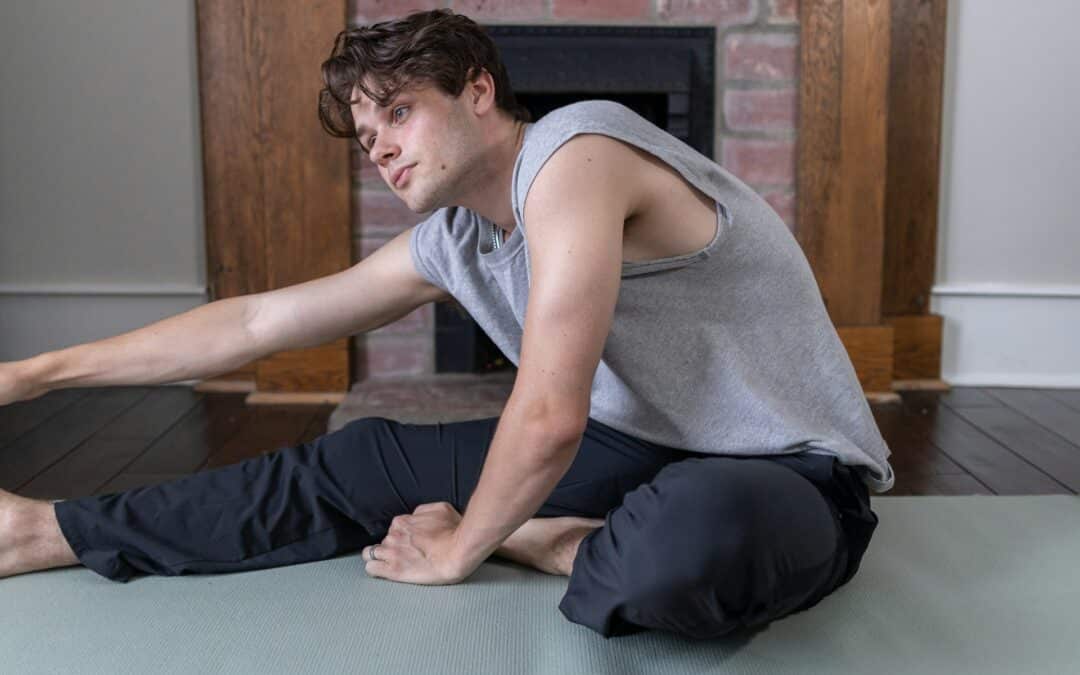Facing and overcoming addiction can be a daunting journey, especially for LGBTQ individuals who often encounter unique challenges. Societal pressures, stigma, and personal struggles can make the path to sobriety more complex. The process of recovery requires resilience and support to navigate the emotional landscape and societal obstacles that might exist. For some, traditional methods may not fully resonate or provide the needed support, leading them to explore alternative paths like yoga.
Yoga acts as a helpful companion in maintaining sobriety, offering both physical and mental benefits. It goes beyond just exercise; it can be a haven of peace and self-discovery, helping to calm the noise that often surrounds the journey to being sober.
Through consistent practice, yoga encourages mindfulness, emotional balance, and a deeper connection with oneself. This blend of mental clarity and physical well-being makes yoga a valuable resource for those striving for a sober lifestyle.
The Unique Challenges of Sobriety for LGBTQ Individuals
LGBTQ individuals often face a set of unique challenges when it comes to maintaining sobriety. Societal pressures can be overwhelming, with discrimination and misunderstanding sometimes leading to increased stress and anxiety. Personal identity struggles and the need for acceptance can further complicate recovery efforts, making it difficult to stay on track with sobriety goals.
These difficulties mean that LGBTQ individuals may look for specific solutions that align with their experiences. Finding a supportive and understanding environment is critical. For some, traditional rehab programs might not address these unique needs adequately, leading to a search for supplemental practices that speak directly to their experiences. Enter yoga, which offers a non-judgmental space where individuals can focus on healing and self-acceptance.
– Emotional struggles: Constant pressure and stigma can affect mental health.
– Identity challenges: Accepting oneself is a key part of recovery.
– Need for support: Finding the right community is crucial for staying sober.
Understanding these challenges helps guide recovery efforts. By recognizing and addressing them, individuals can build a more tailored and effective strategy for sobriety. Yoga supports this journey by providing tools to manage stress, improve mental clarity, and foster emotional healing.
These benefits combine to create a comprehensive approach to recovery, one that acknowledges the unique experiences of LGBTQ individuals and works towards overcoming them peacefully.
How Yoga Enhances Mental Health and Emotional Stability
Yoga isn’t just a collection of physical postures. It’s a comprehensive practice that significantly benefits mental health and emotional well-being. At its core, yoga fosters relaxation and encourages a state of mindfulness, helping individuals to manage stress more effectively.
This practice invites a level of self-awareness that can be freeing, especially when working through difficult emotions. By focusing on the present and engaging in deep, controlled breathing, stress levels tend to diminish, creating a sense of calm.
One of yoga’s key components in supporting sobriety is its ability to improve emotional regulation. Through regular practice, individuals learn to recognize and manage their emotions better, reducing impulsive responses to triggers. For someone dealing with cravings, this can be immensely beneficial. By replacing habitual responses with mindful breath and movement, yoga practitioners can develop healthier coping mechanisms.
Including these components makes yoga a helpful tool on the journey to sobriety:
– Mindfulness practices: Staying present helps manage cravings effectively.
– Stress reduction: Regular breathing and movement calm the mind.
– Emotional regulation: Coping with triggers becomes easier with time.
Yoga’s impact goes beyond physical health, making it an integral part of maintaining emotional stability and mental clarity, crucial elements for anyone on a sobriety journey.
Yoga Practices to Support Sobriety
Practicing yoga offers a variety of methods to support sobriety. Certain poses and breathing techniques directly aid in maintaining physical and mental balance, which are vital for staying committed to sobriety goals.
Consider starting with these approachable yoga poses at home:
1. Mountain Pose: Acts as a grounding posture that encourages steadiness and focus. It’s simple but effective and serves as a base for building awareness and concentration.
2. Child’s Pose: Provides a gentle stretch and a moment of reflection. It’s calming and helps soothe the nervous system.
3. Cat-Cow Stretch: Combines motion with breath, helping to alleviate tension in the spine and connect the mind and body.
Breathing exercises, like alternate nostril breathing, can also play a role in reducing stress and promoting emotional balance. Incorporating these simple practices into daily routines not only supports physical wellness but provides mental strength and clarity needed during recovery.
The Role of Community in Yoga and Sobriety
Community support significantly enhances both yoga practice and the path to sobriety. Sharing experiences with others who understand creates a supportive environment that’s both encouraging and comforting. In a place like San Francisco, where diversity and inclusion are valued, finding classes or groups that align with your needs is feasible.
Being part of a like-minded community means you’re surrounded by individuals who share similar goals. This shared journey can bring strength and motivation, especially on tough days. It’s more than just gathering; it’s about building bonds and forming a network of support that encourages growth and accountability.
Yoga classes or workshops designed specifically for those in sobriety can provide an understanding and non-judgmental environment. Here, it’s about finding guidance and camaraderie, leading to enriched practice and personal growth.
By integrating community into your yoga routine, you’re not just enhancing your practice but laying down a supportive foundation on the sobriety journey.
Finding Strength and Serenity Through Yoga
Ready to take the next step in your journey to sobriety and self-discovery? Join us at Danni Pomplun for transformative classes that integrate trauma recovery yoga for gay men into your routine. Our inclusive and supportive community in San Francisco is here to empower your recovery with practices that cater specifically to the unique experiences of LGBTQ individuals.
Discover how yoga can provide not just physical wellness, but the mental clarity and emotional support you need to thrive.

